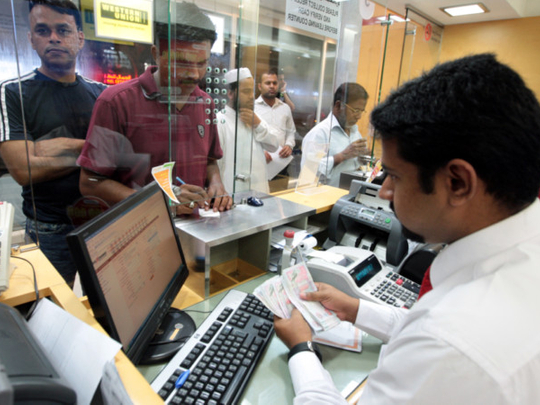
‘Do you get a hardship allowance?” joked my wife’s uncle when he heard she was in India on an international contract.
I had heard that term many years back when I was working in Riyadh, Saudi Arabia, when an Indian secretary told me that certain people such as corporate bosses and embassy staff from western nations get a hardship allowance when posted in Asian and Arab countries.
To me it seemed a waste of money to give a special allowance to certain foreigners since Riyadh had all the amenities and there was no “hardship” involved in living there, unlike my country of origin.
Roads in Saudi Arabia were mirror-smooth and driving was a joy, though short-lived and deadly, fruits and vegetables were relatively pesticide-free, and ice cream did not have blotting paper put into it (to make it frothy and smooth).
People could make huge savings as there was no tax and no frivolous things to spend money on, such as cinemas, cultural shows or gyms and sports facilities and the mall culture was still some years away.
(Things have however, now changed drastically and 2.5 million expats are said to leave Saudi Arabia by the end of next year after the Kingdom levied a monthly $26 (100 Saudi riyals) expat fee on workers’ dependents to generate revenue after the dramatic fall of oil prices. The levy will hike the cost of living of the many middle class expats). Still, there is a reluctance among the Arab and Asian expats when the time comes finally to leave the Gulf states to go back to their home countries. The expats try and stay back as long as possible, and even get into debt, knowing that they will face a huge reversal in their quality of life back home.
On the other hand, there is a large expat population in India today, working in various fields, such as banking, IT and education.
There were many American reporters and editors working in Indian media before print newspapers slowly started losing out to digital.
Cost of living
The expats (of various nationalities, not just North American-Indians, or British-Indians) come because the cost of living in India is way low as compared to their home countries, health care is cheap and procedures for a bad ticker or terrible teeth do not put you in debt as back home.
The salary packages still offer schooling for children and there are still some jobs available here in certain professions unlike back at home.
Some expats come to India for adventure, some to save money, some to start a business.
According to a recent HSBC survey the average salary for a head honcho expatriate is $12,100 per month which translates to Rupees 7.7 lakh. (In contrast an average Indian household earns $300 or INR 20,000 per month).
Cultural shock
But an Expat Insider 2017 survey that interviewed 12,500 respondents of 166 nationalities, ranked India in the 57th position due to the bad quality of life, pollution, long working hours (a working week running into 47.7 hours) and cultural shock.
(My wife’s cousin said there is a thin layer of black dust on furniture at home every day due to pollution. In Bengaluru for instance, traffic is horrendous and productive time is wasted on the roads).
Interestingly, the survey has showed that US and UK were also in the less favourable spots at 43 and 54 respectively, because of the new president and his “America First” and expat-unfriendly policy, and Brexit that has brought about a fear of foreigners in Britain.
Expats have chosen the Arab Gulf state of Bahrain as the best (at number 1) for the ease of settling in and work-life balance.
The other favourite countries of expats are: Costa Rica, Mexico, Taiwan and Portugal. Maybe my wife should try to get a hardship allowance.
Mahmood Saberi is a storyteller and blogger based in Bengaluru, India. You can follow him on Twitter @mahmood_saberi.











